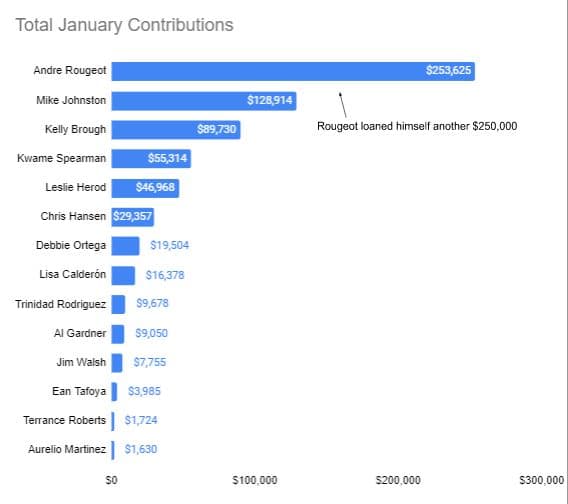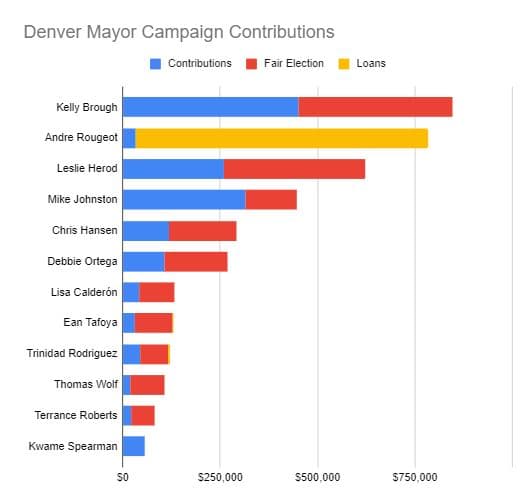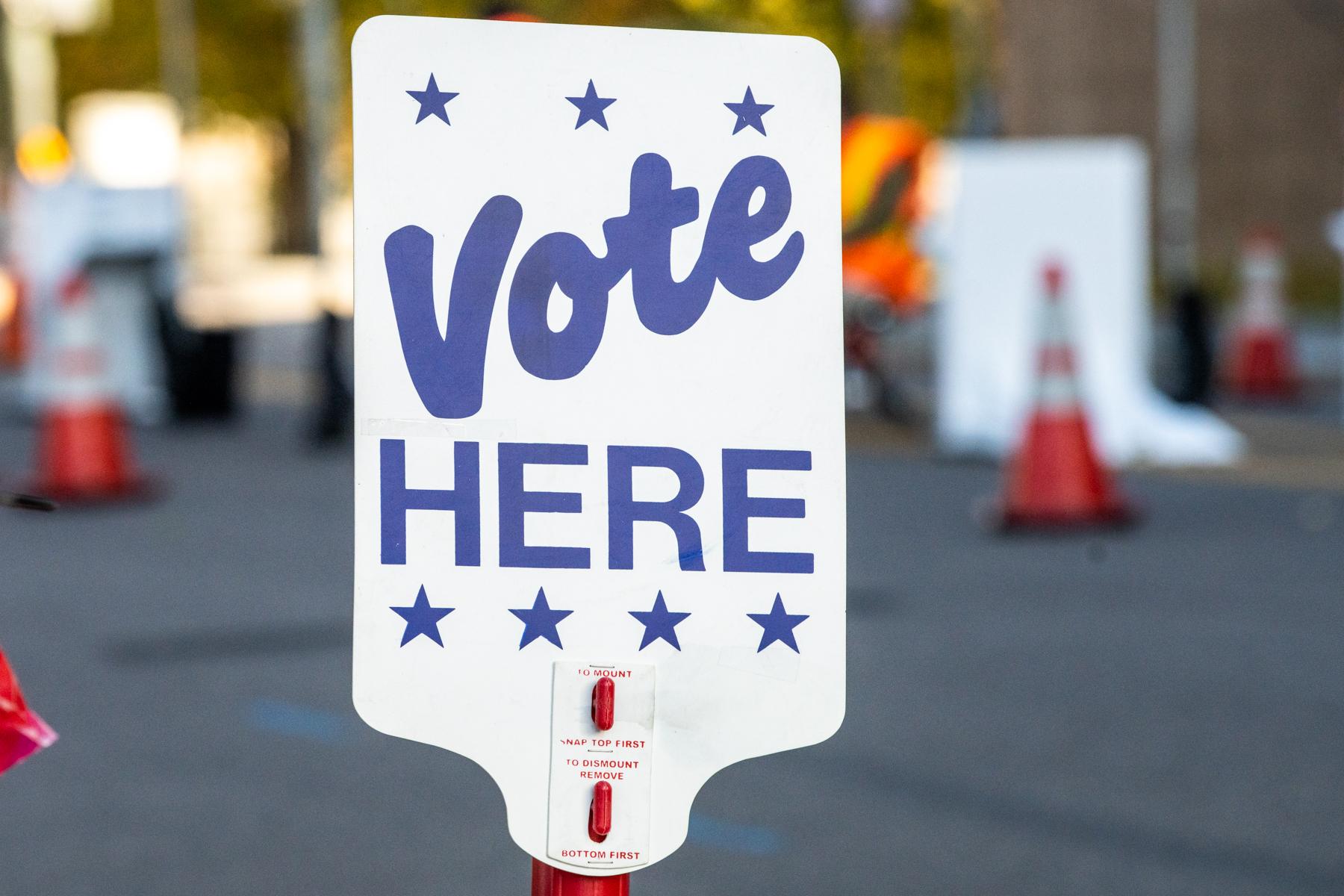Loans and out-of-state money headlined Denver mayor campaign money in January.
Republican Andy Rougeot, a longshot in a liberal progressive city, wrote himself another check for $250,000 to set the pace in fundraising in the latest round of reports. He raised only $3,625 in contributions from others.
Former state senator Mike Johnston, described as "a fundraising machine," pulled in an additional $128,914 in the January report. Johnston said in a statement that he was "proud to have earned the support of so many Denverites in this campaign," though it is notable that $55,602 of his January contributions came from out of state.
The out-of-state support shows the national profile that Johnston has, thanks in part to his work in education reform. Those contributions, however, are not eligible for the Fair Elections Fund match. So far, Johnston is getting the smallest Fair Election Fund match, as a percentage of his overall campaign money, of any of the top candidates accepting the taxpayer funds.
This is the first election the Fair Elections Fund is being used in Denver. Passed by voters in 2018, it provides matching dollars on qualifying contributions. To qualify the contribution must come from a Denver resident, and be properly documented by the campaign. Contributions up to $50 dollars are matched at a 9-to-one rate, so a qualifying $50 contribution is matched $450 from the fund.

Source: Denver Elections Division
There are 17 candidates for mayor on the April 4th ballot, the largest field in at least 40 years. Mayor Michael Hancock is term limited after three terms and 12 years in office. The mayor job is an extraordinarily powerful political position, with control of the city budget, hundreds of appointments, the airport and plenty of other responsibilities.
How did other candidates do in January?
This was the first month Kwame Spearman, CEO and co-owner of Tattered Cover, reported contributions -- he totalled $55,314, with a large portion, $19,543, coming from out-of-state, mostly from New York. Some of the New York contributions came from attorneys with Boies Schiller Flexner, and consultants and directors at Bain & Company, where Spearman was once a management consultant.
State Rep. Leslie Herod raised $46,118 in January and remains in the third spot in overall fundraising with $624,438.
"We always knew this was going to be a tough fight against candidates with deep pockets. But, I am confident that Denver voters will coalesce behind our campaign and ensure that there is a progressive option in the runoff election," Herod said in a statement.
The top of the fundraising pack still goes to Kelly Brough, the former Denver Metro Chamber of Commerce CEO. She raised $88,663 in January to put her total, including Fair Election Fund matches, at $848,872.

Source: Denver Elections Division
Councilwoman Debbie Ortega and State Senator Chris Hansen are a tier below the top. But Hansen is earning more per day, having entered the race much later than Ortega, who has been in Denver politics for decades. She's raised less than $15,000 a month since October, a fraction of what the top fundraising candidates are getting.
Social justice activist and Emerge Colorado executive director Lisa Calderón, who placed third in the 2019 mayor's race, pulled in an additional $16,378, putting her a step below Hansen and Ortega.
In the lowest tiers of fundraising is a group of candidates that pulled in between $9,678 (Trinidad Rodriguez) and $125 (Robert Treta) in January. Thomas Wolf appears, based on city data, to have not raised a single dollar in January.
But then there are candidates, with less name recognition, who have relatively impressive fundraising, like Jim Walsh, who in two months raised about $15,000 with more than 400 contributions. Or Al Gardner, who's raised more than $12,000 over 105 contributions.
While the race is nearing election day, now less than two months away, contributions to mayoral candidates actually slowed down in January. There were $684,299 given to candidates in January, down 14% from December, when contributions totaled $793,521.













